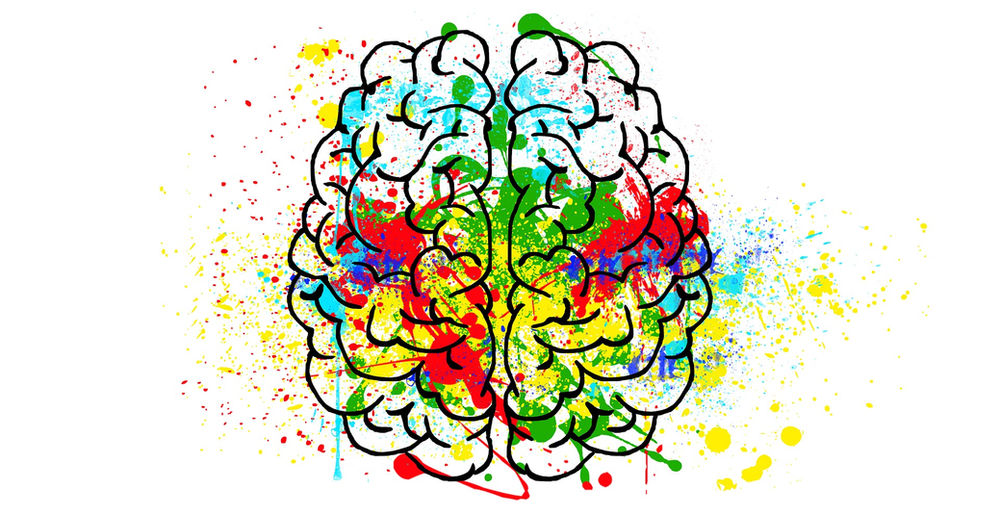Anxiety, The Lizard Brain, and How You Can Take Back Control
June 12, 2019

Anxiety is one of the most common mental health conditions. In fact, there are approximately three million cases diagnosed a year in the United States. Furthermore, the age range for those diagnosed with anxiety for the first time is 14 to 60 years old.
What Is Anxiety Anyway?
Think of Anxiety as being the result of the faulty wiring of natural survival mechanisms. Humans come equipped with built-in capabilities meant to keep us alive. A lot of the structures that house this wiring live in what some of us like to call the “Lizard” part of our brain. That is the part of our brain that developed first and was necessary to protect us from dinosaurs (or whatever )when we lived in the wild.
As time went on, we evolved, and our brain developed more advanced capabilities. Hence, our ability to reason, communicate with language, etc. But, just because we developed all of these awesome things that make it cool to be human, doesn’t mean our Lizard isn’t still firing away. You know, trying to stay relevant and protect us.
Typically, we are able to reason with this part of our brain. Tell it to relax when it is acting up.
Like after you almost get into a car accident. Your heart races, your palms may be sweaty, and you are on super high alert. You had to get that way in order to act quickly enough to avoid the accident. Or, in order to protect yourself as much as possible if it were to happen. But, after a minute of you saying “whoa that was close” and “I’m okay”. You are able to turn the radio up again and forget about it.
However, in the case of anxiety, our reasoning is simply not enough. That Lizards grabs a hold of you and if your particular Lizard brain is especially feisty, it can rock your whole world.
People with anxiety are riddled with worry that can leave them feeling restless, revved up, and/or stuck. Flight, Fight, Freeze.
Anyone who has ever had a panic attack knows just how horrific this can be at its worst. I find that it helps when I’m speaking with clients and their families to explain why this is happening. It brings a sense of normalcy to what otherwise can be a crazy making experience.
Taking Control of the Lizard

Mainly, I find that once people understand the why, the interventions we talk about aimed at regaining control over the Lizard make more sense.
So here’s what we know so far…
1. The Lizard Brain came first, it means well, and wants to keep us alive. If it thinks something is scary or dangerous it rings all of the alarms until safety is restored.
2. Sometimes the Lizard Brain can malfunction- it is super old after all.
3. Reasoning with the Lizard Brain alone doesn’t work.
As a result, we’ve got to take a multifaceted approach to contain it, calm it down, and let it know who’s in charge.
Five Awesome Coping Mechanisms for Anxiety and Why They Work.

1. Mindfulness
This is an overarching topic that forms the foundation for much of my therapeutic interventions. Mindfulness as it relates to anxiety simply refers to the idea of being aware of yourself and how you feel.
If you suffer from anxiety, you know that sometimes it seems like it comes out of nowhere. I hear that quite a bit. However, I often challenge my clients who say this and ask them- “what were you feeling before you noticed you were anxious?”. The answer is usually “I don’t know”. I can tell you that if you are feeling super anxious, there was likely a buildup.
Being mindful by making it a priority to check in with yourself periodically is important. Ask yourself: “how do I feel right now” often. It will help you to figure out what you need, and when. The rest of the strategies on this list can be employed at any time during the “build up” and even in full blown panic mode.
2. Deep Breathing
This often falls into the mindfulness category, but I like it as a standalone intervention. Most people think they know how to breathe deeply, but it is easier said than done when in the throws of anxiety.
My three biggest tips are as follows:
1. Don’t try to fight against the anxiety as you try to breathe. You will only end up becoming more anxious. Instead, make a concerted effort to focus on your breathing and eventually it will begin to help.
2. Fill your body up with air until you can’t possibly fill it any longer when you inhale.
3. When you exhale, push all of the air out SLOWLY. If it helps, form your lips as if you are getting ready to whistle.
Here is a list of thirteen deep breathing apps. Some of these are really cool. You can set them periodically to remind you to breathe. Such an easy way to ensure you are checking in with yourself!
3. Grounding Exercises
I love these and recommend them often. These aren’t your traditional forms of exercise (though we’ll get to that in a bit). These are things that you do to help engage your senses. Engaging your senses when you’re feeling anxious is super helpful because it diverts your mind’s attention.
The Lizard part of your brain is not able to command the energy that is necessary to experience all sensations. Much to its dismay. So, a great way to take back control is to engage in a multi senatorial experience.
One example of a grounding exercise is holding ice. I tell my clients when they hold the ice to be aware and mindful of what it feels like in their hand. Let the adjectives flow. Also, remember to focus on your breath, too.
Another awesome grounding exercise is one that takes some prior prep and builds on the ice idea. Take a bowl, fill it with beads and/or other small objects, add water, then freeze it. When you feel you need some grounding take the bowl out of the freezer. Then, fish out the beads and objects. You will have to be creative about how you get them out. This is why it’s so helpful as a grounding exercise. With this activity you are engaging multiple senses, as well as diverting your cognitive energy to a task. Lizard brain should quiet down after you’ve ignored it for a bit.
Anything that engages your senses can be a grounding exercise. Showers, holding a warm drink between your hands, smelling pleasant smells are all great things to try.
4. Exercise
I probably don’t have to tell you this. But I’m going to anyway. Exercise has many benefits to overall health, including mental health. Expending some energy in the gym can be just what you need to keep your Lizard dormant.
5. Talk with Someone
Sometimes anxiety is not only the result of the misfiring of the brain. Perhaps the Lizard is reacting for good reason. If you are finding that coping skills alone aren’t keeping your anxiety at bay, then finding a good, solid, therapist to help you sort through things is advisable.

Pinnacle Co-Founder Dahyana P. Schlosser, M.Ed. is a Child and Family Therapist and tireless advocate for Children’s Mental Health. Her passion for helping others serves at the core of her perspective on problems and innovative solutions.




